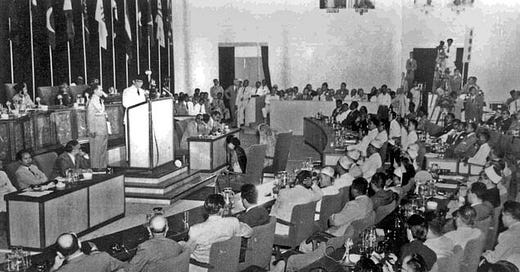The structures of the neocolonial world-system
Understanding racism in global and historical (colonial) context
The most serious limitation of the woke ideology is that it does not escape the pervasive ethnocentrism of present-day U.S. thought, such that its critique of racism understates the global and historical context that has shaped racism in the nation. As a result of this limitation, the woke erroneously emphasizes the alleged racism of historic figures and contemporary individuals; it fails to call the peoples of the United States to participation in the present global movement by peoples of color to attain fundamental changes with respect to unjust global neocolonial structures.
Modern racism emerged in the context of the Western European conquest of the world from the sixteenth through the nineteenth centuries, which was a modern and more technologically advanced expression of the historical human tendency toward conquest of neighboring nations and peoples in the formation of empires and civilization. The modern conquest, consistent with histor…



